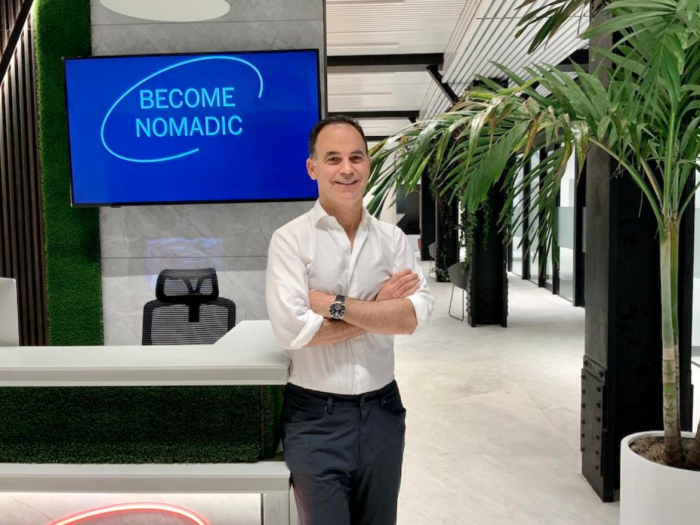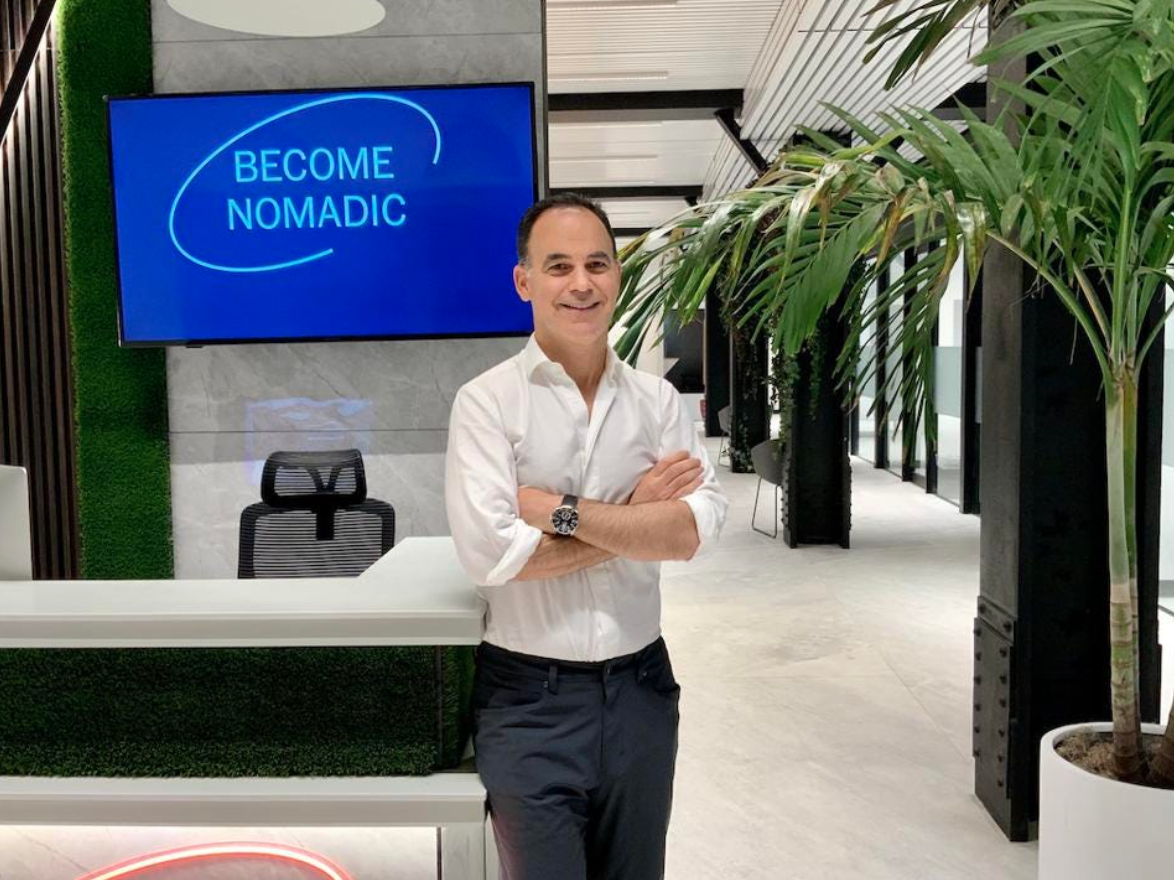
Coworking is not a new concept, but having been dominated by major players like WeWork and Regus, the shared workspace sector is being reshaped by more flexible, service-oriented operators creating an environment that appeals to a new generation of nomadic entrepreneurs. That was the vision of entrepreneur Steven Cohen when he launched Nomadworks in 2018.
The space, on the corner of Broadway and 30th Street, was previously occupied by flexible office business Grind. It had been underperforming and making losses, so when Cohen arrived in the U.S. from the U.K. in 2017, he set out to rescue, rebuild and rebrand it. “I envisaged a workspace niche that catered for mobile and digital entrepreneurs, an audience that I felt was underserved and would be in high demand for the right offering,” he says.
The former CEO and founder of Blue Inc, Cohen’s successful career in retail spanned 20 years, and his ethos had always been about delivering an exceptional customer experience and differentiation.
He says: “Coming to the U.S., I felt I could apply the branding service skills and differentiation to a new field. I particularly liked the flexible office model because, in 2018, I sensed there was going to be a shift towards shorter term, flexible office environments, where businesses were no longer committing to 10 or 20 years.”
The business was acquired and rebranded to Nomadworks; the name reflects its location in the Nomad district of Manhattan, but more significantly, its target membership in the digital age.
“We were catering for people with a nomadic mindset. And certainly, during the pandemic, when our virtual membership grew more than 35-fold, more people were becoming digital nomads, who don’t necessarily want a physical address but do want a New York City address on their website or business card.”
As well as facilitating a range of business services, Nomadworks is a base for conventions and events that Cohen says members cherish. “It is something of a white glove service that is more curated than the We Works of this world that have hundreds of locations where you don’t know who you’ll be speaking to from one day to the next.”
In creating the Nomadworks brand, Cohen focused on hospitality, the environment, which is all around the 35,000 square feet of space, and work-life balance. Members have access to a range of amenities, including a roof terrace, hair salon, yoga lessons, showers, cycle storage space, a massage room, a meditation room, Thursday happy hours, and regular events, the extras that Cohen describes as ‘sticky’.
“People who use a flexible workspace want more than just a desk, Wi-Fi connection, and cleaning services,” he says. “They want a community and a place that makes them want to stick around as a member of Nomadworks.”
Nomadworks caters for new entrepreneurial businesses and hosts an incubator program, Nomad Seed Camp, to help them get to the next stage of their growth. “In the Nomad district, 40% to 50% of our members have tech businesses in the new economy, and they work very collaboratively with each other,” says Cohen. “Our space and facilities offer the perfect environment for them.”
Like the rest of the flexible office space sector, everything changed for the business when the pandemic hit in April 2020. Cohen was planning to open an additional two locations but was forced to push those plans aside and spent the next 18 months perfecting the concept, improving the virtual experience, and just surviving.
He says: “We watched some of our largest competitors, including We Works, and quite a few mid-size players struggle. We watched them vacate space, and in the process, we saw an opportunity for Nomadworks to grow and develop a 2.0 post-pandemic model of flexible workspace.”
Despite the challenges, the pandemic effectively leveled the playing field by creating a supply of affordable space. Cohen realized that there were big businesses with floors of real estate sitting idle in different cities, not looking for someone to lease the space but for the area to be managed for them to reduce their operational headache. He says: “We could take a fee to manage and to fill the space and use the Nomadworks brand to help give them a purpose for their surplus real estate.”
Alongside a healthy supply side, with the post-pandemic return to the office, the demand side is also heating up. “We are seeing a clear shift away from 10 or 20-year leases in favor of one to two-year, maybe even six-month flexible options to encourage people out of the home working arrangement,” says Cohen. “There is significant demand from large corporates downsizing into flexible offices, and that’s what we’re capitalizing on.”
On the back of this, Cohen has opened a second location in Time Square, which, like the original Nomadworks, takes advantage of being close to a key transport hub from the major suburbs into the city. He plans to open 10 Nomadworks spaces in similarly strategically-planned locations over the next three to four years and is inviting a first investment round.
He says: “I’m taking a similar approach to growth to the retail business that I was CEO and founder of, and building up in the right locations. Once you have the formula, you can move very quickly. We have spent the last two years honing this, and the future looks exciting.”
Article by Alison Coleman
Forbes article here.
